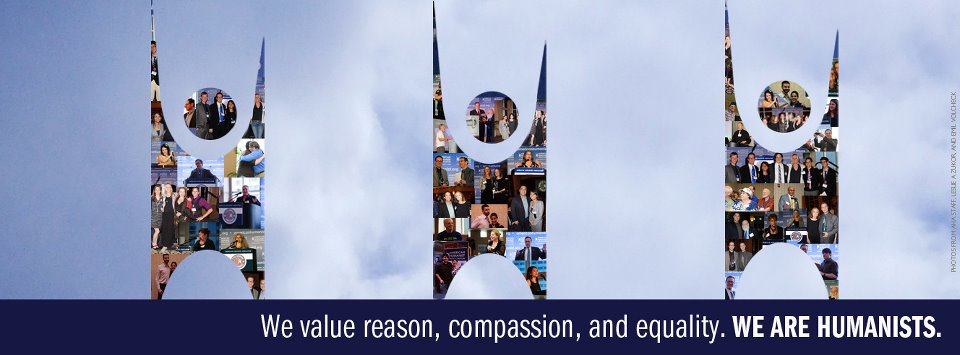
Humanism is a way of life that is based on two underlying philosophies. The first is Naturalism, or the view that only the natural world exists. We do not need a belief in the supernatural, gods, spirits, reincarnated souls etc. Nature is and it is enough. The second underpinning of humanism is existentialism. We exist, here and now on earth. We have not been given a roadmap for finding happiness or meaning in our lives by a supernatural being. So we have to figure this out for ourselves. Numerous thinkers, philosophers, scientists and our own experiences inform the choices we make in life and help us on our quest for happiness and meaning. Humanism emphasizes the worth and dignity of every human being, democracy, reason, compassion and the need for humankind to live in peaceful community. Humanism upholds the scientific method as the best way to obtain knowledge about the nature of the universe. We can find meaning in our care for loved ones and our friends but humanism calls on us to expand our concerns to the whole world. Working to make societies more just, democracies free of corruption, the environment healthy, and human rights enjoyed by everyone are all ways that we can find meaning and happiness in our own lives.
Humanism has been part of human experience from ancient times. The ancient Indians and Chinese developed philosophies that we can recognize today as forms of humanism using the concepts discussed above. In the West, many of the ancient Greek philosophers pondered the best way to live and be happy without relying on divine revelation. With the emergence of a powerful Christian Church, the Greek schools of philosophy were closed in the fifth and sixth centuries of the CE and Europe entered the dark ages where the only permitted answers to human thirst for knowledge and wisdom were the teachings of the church. The humanist urge for intellectual freedom reemerged several times in Europe notably in the Renaissance, fueled by rediscovery of the Greek philosophers; the Enlightenment, fueled by scientific discoveries and now the modern era, fueled by the quest for human freedom and equality. Whenever humanism is in the ascendency, humanity flourishes.
Much of the modern world today seeks to achieve humanistic goals such as freedom and democracy. Our own country, often claimed to be Judeo-Christian, is actually also inspired by Greco-Roman ideals. To be sure these ideals, about democracy, free inquiry and equality, were incomplete in the ancient world as it is even in our own modern world.
We still work to make the world more democratic, peaceful, and just. Humanist ethics are free from ancient books written in times that were patriarchal and without the benefits of scientific understanding of the universe, and without the influence of philosophers who envisioned individual freedom. Our ethics tells us that women should be treated equally with men and be able to make decisions regarding their own bodies free from interference of religious institutions and government. Likewise, same-sex couples should have the right to marry. While there are exceptions, most of the resistance to these ethical positions comes from religions. Humanists look forward to a world that is not divided by religions or nationalism; where everyone enjoys human rights and economic needs to which they are entitled. We believe these goals can be achieved by building a more humanistic and sustainable world.
Want to learn more about humanism? Try these resources:
- Visit the web site of the American Humanist Association www.americanhumanist.org
- Take an online course from The Continuum for Humanist Education www.cohe.humanistinstitute.org
- Take graduate level courses at The Humanist Institute www.humanistinstitute.org
- Find a humanist celebrant for your life event www.humanist-society.org/celebrants
- Find support with Grief Beyond Belief www.facebook.com/faithfreegriefsupport